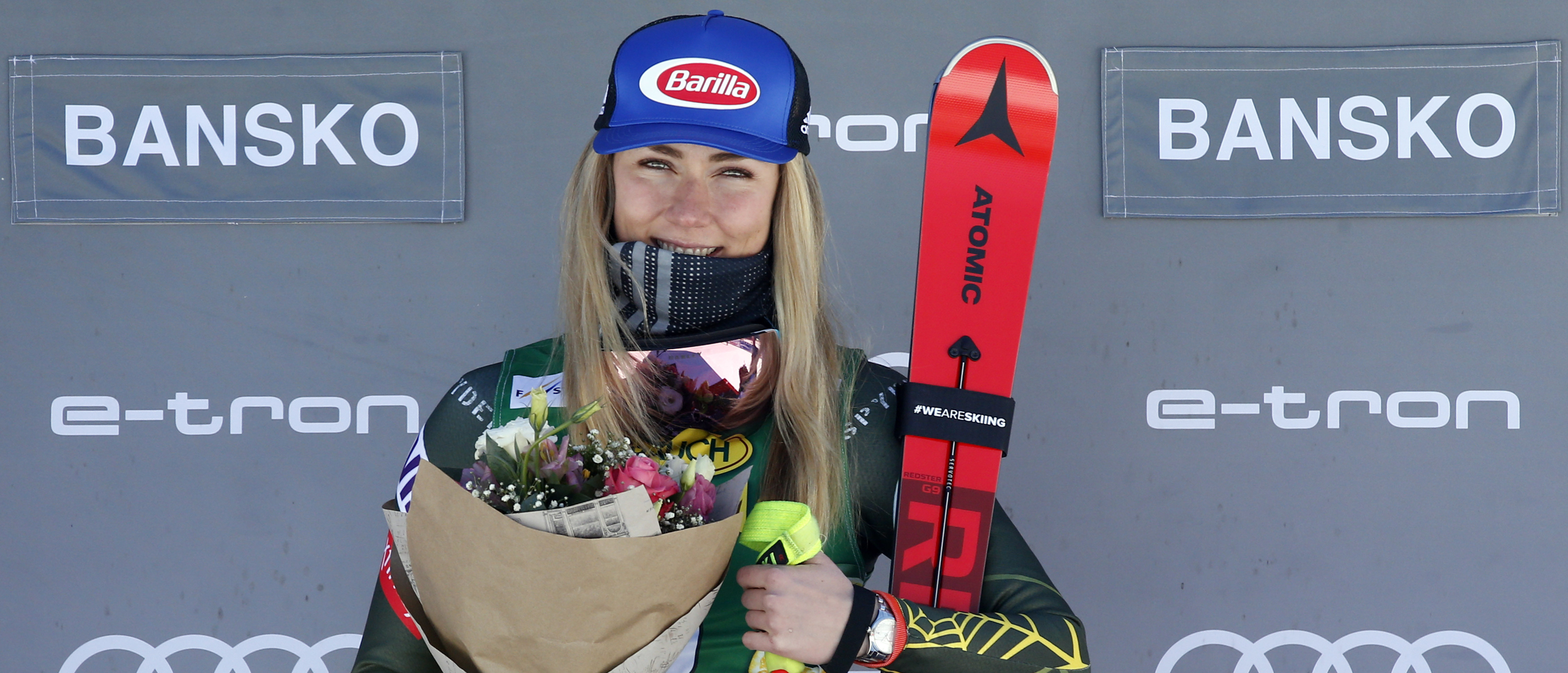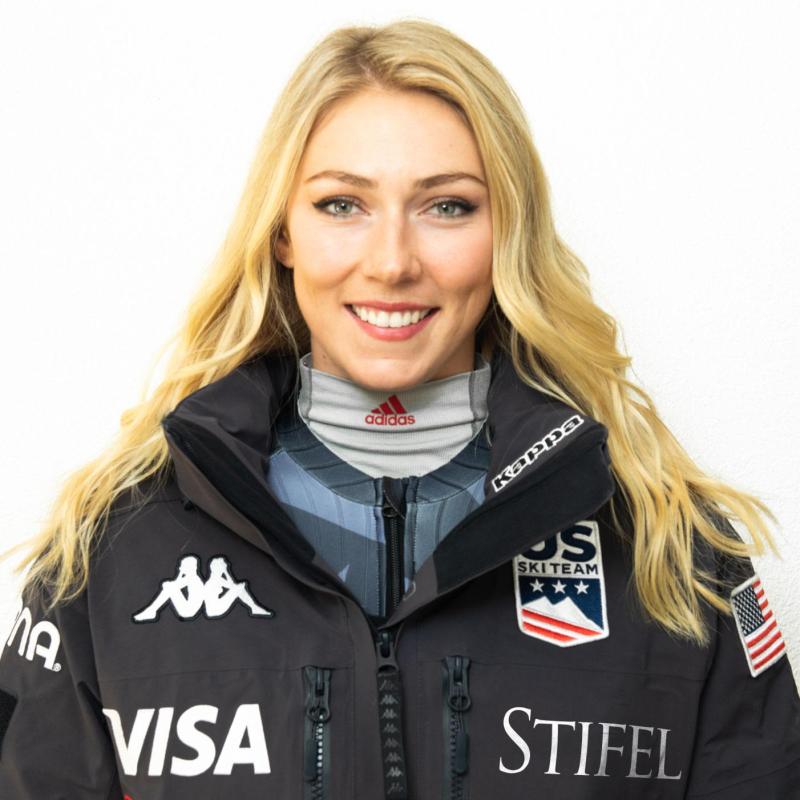Shiffrin Earns Another First with March Sports Illustrated Cover

It was February 1st, 2020—an unusually warm day in Alpe Cimbra, Trentino, Italy, home of the official European training base for the Land Rover U.S. Alpine Ski Team. Olympic and World Champion and FIS Ski World Cup overall leader Mikaela Shiffrin was there to begin a training block, but she was also there to achieve yet another career-first: become the first Olympic athlete in this sport era to receive a solo Sports Illustrated cover outside of an Olympic year.
Mikaela was fresh off a two-for-three-win race weekend—a downhill and a super-G—and was fourth in the third event (downhill) in Bansko, Bulgaria. As was often the case, her father, Jeff, was there to watch his daughter, and to photograph Mikaela and other racers—a passion of his. Her mother, Eileen, was there to coach and be that constant companion who has been there for Mikaela for her entire career. Mikaela’s teammates on the women’s speed team mentioned how happy Jeff was in Bansko—not just because Mikaela was skiing well there, but that he just seemed “warm and happy in general.” He was incredibly proud of his children, both Mikaela and her older brother Taylor—who was a member of the two-time NCAA Champion University of Denver Ski Team.
Often moving from one location to another in a hurry to get to the next training venue or race venue, the team does not have a chance to sit down post-race weekend, reflect, and celebrate. On a rare occasion on that Sunday evening after the Bansko super-G, the entire women’s speed team and staff—including Jeff and Eileen—went to a team dinner on Sunday evening after Bansko to celebrate the weekend’s successes.
On Saturday at the World Cup in Bansko, Bulgaria, after Mikaela was fourth and teammate Breezy Johnson was fifth in the second of two downhills, Jeff sent images of Mikaela and Breezy to me, as he often did. On Sunday, after Mikaela won the super-G, he sent me a team picture and a few podium pictures of Mikaela. Always behind the camera and never in the spotlight, Jeff was described by NBC’s Tim Layden in a touching tribute as “the quiet, constant rock in Mikaela Shiffrin's life.” In an Instagram post on February 3rd, Mikaela described her father as “the firm foundation” of their family, adding that he was “Our mountains, our ocean, our sunrise, our heart, our soul, our everything.”
Following the 24-year-old’s 65th and 66th victories (bringing her win tally to just one shy of Marcel Hirscher’s 67) in Bansko, she took an uncharacteristic break in World Cup competition to rest and recharge for the remainder of the season. As one of the few multi-event skiers on the World Cup (and the only athlete to win in all six currently contested disciplines), it is vital for Mikaela and her team to find balance in the near-impossible FIS World Cup schedule—which is tailored to athletes who specialize in one or two disciplines. During that break, she spent valuable time with her parents and her team. From there, she traveled to Alpe Cimbra, Trentino, Italy, for the cover shoot of Sports Illustrated’s March 2020 issue.

Though it wouldn’t be Mikaela’s first solo Sports Illustrated cover, it would be her first cover outside of coverage of the Olympic Games. In fact, Mikaela would become the first Olympic athlete in this sport era to receive a solo Sports Illustrated cover outside of an Olympic year—yet another first for the young phenom. Certainly, after the dominance Mikaela has had in the sport she is more than deserving of mainstream media attention, but the media landscape in the United States is heavily focused on the big four: Major League Baseball (MLB), the National Basketball Association (NBA), the National Football League (NFL), and the National Hockey League (NHL).
Then, every four years, all eyes turn to ski racing...an “Olympic sport.” In fact, most people are not aware that World Championships happen every two years, let alone that World Cup competition happens every year, starting in October and lasting through March. If an athlete competes in every discipline, they’re competing almost every single weekend in the winter, and attempting to sneak in training in between for every discipline—from downhill to slalom. That’s akin to a track athlete attempting to maintain the endurance needed for the 1500m run, while also having the quickness and strength to compete in the 100m. And then win in all of them. It’s rare. And merits celebration.
Mikaela has grown accustomed to the fact that each time she steps into the start gate, it’s another opportunity to rewrite history—the journalists won’t let her forget that, and she’s been known to playfully comment about all of the records that exist in this sport. Winning 17 World Cup races in a single season is something no one had ever achieved. By doing so in 2019, Mikaela broke a 30+ year record, which was previously held by Switzerland’s Vreni Schneider. Vreni had won 14 races. It’s unlikely (though Mikaela would be the first one to admit that it’s not impossible), that Mikaela’s record of 17 will ever be broken.
In 2019, Mikaela won across four disciplines (super-G, giant slalom, slalom, parallel slalom). Inclusive of World Championships, she started in 29 races and had 24 podiums and 19 victories. There was an 83% chance she’d podium a race she entered and a 66% chance she’d win it. Given the number of races, these percentages show next-level dominance. Yet, Mikaela still grapples with this success and the notion that she’s “the most dominant athlete in Sport.” As the subheadline of the Sports Illustrated piece reads, "No athlete in the world dominates their sport—or grapples with success—like Shiffrin, whose season of ‘transition’ became even more challenging with the death of her father.”
And so, on February 1st, as she was being interviewed by Sports Illustrated, it was not surprising that she was still stunned about the honor of being March’s cover girl, “It’s such a cool thing to be at the point in my career where this is even possible, but I never imagined I’d actually be on Sports Illustrated not surrounding the Olympics...but just surrounding my own career separate from the Olympics is amazing,” she said, in her trademark unassuming and authentically humble disposition.
It’s been admittedly tough for Mikaela to follow up and make sense of her historic 2019 season, which began with news that her beloved grandmother had passed away in October just before the World Cup opener in Soelden, Austria. After the Sports Illustrated shoot, the unthinkable happened when she received the phone call that her father Jeff had suffered a grave injury from an accident sustained at their Colorado home. Then, as Greg Bishop, a writer for Sports Illustrated said, “nothing made sense again.”
“There’s one word that bothers Shiffrin: human. She hates when people say that about her, because it’s usually meant as an insult. She’ll barrel down some mountain, a blur on two skis, lose by hundredths of seconds in almost perfect races, only to hear some internet yahoo say it proves she’s human, as opposed to some sort of ski-racing cyborg. In the right context, though, Shiffrin is more human than most star athletes. She’s admittedly awkward, blissfully honest, yet introspective and open about her own vulnerability.”
Greg Bishop, a sportswriter for Sports Illustrated, wrote a beautiful piece that would both honor Jeff’s legacy, while at the same time perfectly portrays to the world how unique and special Mikaela Shiffrin—"the most dominant athlete on the planet"—is not only as an athlete but as a human being. And that, most certainly, comes from how she was raised by Jeff and Eileen.
“That Shiffrin can process what it feels like to control two skis attached to her feet while moving at 80 miles per hour, and not only analyze what that’s like but explain it to mere mortals, says something about her, too. Like: that maybe all the times she gets inside her own head are good for her. It’s a tricky balance, sure, but this is Mikaela Shiffrin, who can pull off the rarest of feats: She’s the most dominant athlete on the planet and doesn’t quite realize it.”
And, yet again, Jeff would be proud.
Read Greg Bishop’s full article in Sports Illustrated, entitled “Mikaela Shiffrin’s View from the Top.”

